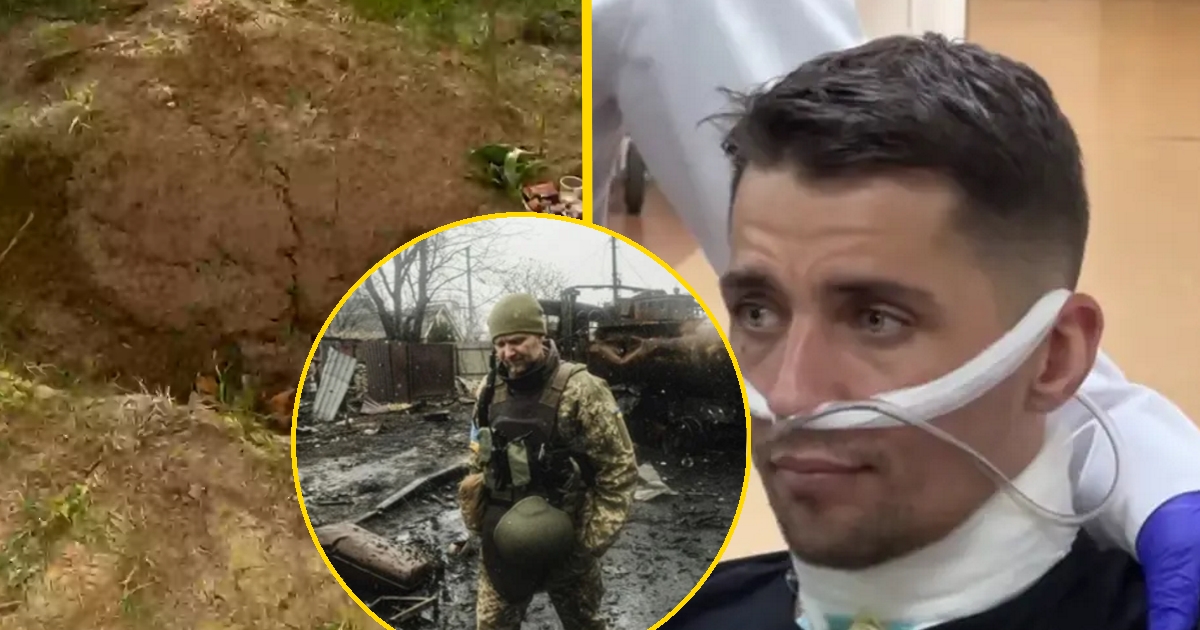The story of one Ukrainian soldier, captured by Russian forces and subjected to unthinkable cruelty, has left even hardened war reporters shaken. Tortured for days, beaten unconscious, and finally buried alive in a shallow grave, he somehow clawed his way out of the earth and stumbled to freedom. His survival is now being called a miracle of willpower, and his testimony exposes once again the sheer brutality inflicted on prisoners of war in this conflict.
According to an investigation cited by Reuters, the soldier—whose identity is being withheld for his safety—was captured near the frontlines in eastern Ukraine earlier this summer. He described being bound, blindfolded, and subjected to hours of electric shocks while his captors demanded intelligence he did not have. When he lost consciousness, he was dragged outside, dumped into a hole, and covered with dirt. “I could hear them laughing,” he told aid workers. “They thought I was finished.”

Accounts of Russian torture are well documented. Amnesty International has detailed dozens of cases involving mock executions, starvation, and mutilation. But the story of a soldier literally clawing his way out of a grave adds a new level of horror. Human rights advocates say it underscores the urgency of war crimes investigations already underway at The Hague, where Russia faces mounting charges.
“He was tortured, buried alive, and still found the strength to live. This is resilience defined.”— @HumanRightsWatch
His escape began in silence. Gasping for air, he pushed against the dirt pressing down on his chest, his arms barely able to move after days of beatings. Somehow, he found the strength to free one arm, then another, until his hand broke through the surface. Hours later, half-conscious and choking, he dragged himself from the grave. Stumbling barefoot through fields, he walked until villagers discovered him collapsed by the roadside and rushed him to safety, as described in BBC reporting.
Doctors later confirmed he had multiple broken ribs, severe internal bleeding, and burns consistent with electric shocks. He was barely alive when brought to hospital. A doctor quoted by The New York Times said his survival was “almost physiologically impossible.” Yet after surgeries and weeks of recovery, he is now able to speak publicly, determined that the world hears exactly what happened.
His testimony has been handed to prosecutors building a war crimes case. Human Rights Watch confirmed that investigators are documenting his injuries as forensic proof of torture. Ukrainian officials say his story will be added to hundreds of others already filed with the International Criminal Court, which has previously issued warrants against Russian commanders for abuses. The soldier’s words—quiet but unwavering—are now part of that global record.

“These are not isolated acts. This is a system of cruelty designed to break human beings.”— @EuromaidanPress
For his family, the ordeal was unbearable. They were told he was missing in action, and for weeks they mourned him as dead. When news came that he had been found alive, they rushed to the hospital in disbelief. His wife described holding his bruised hands and whispering, “You came back to us from the grave.” Their reunion was covered by AP News, which reported that relatives broke down in tears as they embraced him, unable to comprehend his survival.
Ukrainian President Volodymyr Zelenskyy reacted to the revelations with outrage, calling the torture and burial “pure barbarism.” He urged Western allies to accelerate deliveries of air defense systems and weapons, insisting that every delay enables Russia to continue committing atrocities. His remarks, carried by Deutsche Welle, painted the soldier’s story not as an isolated tragedy, but as a symbol of Russia’s wider campaign of terror against Ukrainians.
International reaction has been equally fierce. A spokesperson for the European Union told The Guardian that such acts “cannot go unpunished” and demanded that accountability measures be strengthened. In Washington, U.S. officials called the soldier’s testimony “horrifying evidence” that underscores why sanctions and military support must continue. Across social media, his survival has become a rallying cry for Ukrainians determined to resist despite impossible odds.
“Ukraine bleeds, but refuses to die. Even buried alive, we rise.”— @nexta_tv
The psychological scars remain deep. Friends describe him as withdrawn, speaking little, his eyes often fixed on the floor. Yet when he does speak, his words carry the weight of someone who has lived through death and returned. Trauma specialists told TIME that survivors of such experiences often suffer lifelong post-traumatic stress, but also become powerful witnesses whose voices can change international opinion.
Within Ukraine, his story has already taken on symbolic power. In vigils held in Kyiv, candles were lit in his honor, alongside prayers for thousands of others still missing. Videos shared by @KyivIndependent showed crowds chanting “Glory to the heroes!” as images of tortured soldiers were projected onto government buildings. For many, his survival proves that even Russia’s most brutal tactics cannot extinguish the will of a nation to endure.
As winter approaches, the attacks and abductions are expected to intensify. Analysts writing for The Economist argue that Russia has shifted to psychological warfare, using fear as much as firepower. The testimony of a soldier clawing his way out of a grave is not only a chilling account of individual suffering, but also a glimpse into that larger strategy: to terrify Ukrainians into surrender. Yet if his story proves anything, it is that terror is failing.
For now, the soldier is recovering quietly in a secure location. His body carries the scars of torture, but his voice—calm, unwavering—is now part of a growing chorus demanding justice. His survival, against all odds, is more than a personal victory. It is a message to the world that even buried alive, Ukraine refuses to be silenced.






